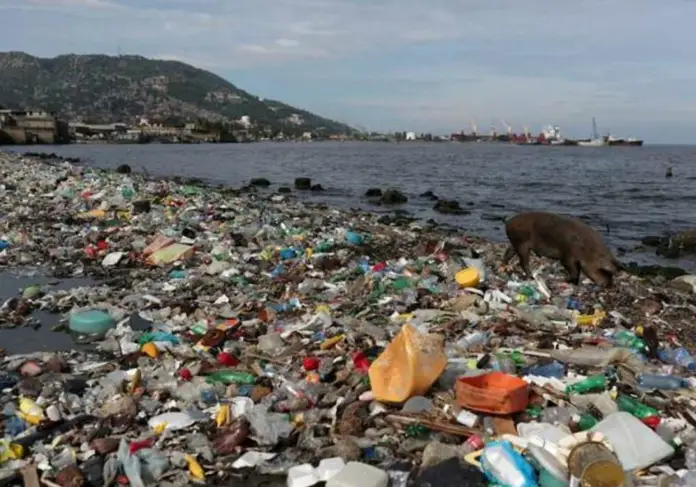The amount of plastic entering the world’s seas has been “unprecedented” since 2005 and might nearly triple by 2040 if no further action is done, according to a study released on Wednesday.
A peer-reviewed study conducted by the 5 Gyres Institute, a US organization that works to lessen plastic pollution, found that by 2019, an estimated 171 trillion plastic particles were floating in the seas.
If globally enforceable measures are not put in place, marine plastic pollution might increase 2.6 times by 2040, it was estimated.
The research examined data on surface-level plastic contamination from 11,777 ocean sites in six significant maritime areas from 1979 to 2019.
5 Gyres Group co-founder Marcus Eriksen said in a statement that the group has discovered a worrisome pattern of exponential development in the number of microplastics in the world’s oceans since the turn of the millennium.
We need a robust, globally enforceable UN convention on plastic pollution that tackles the issue at its root, he continued.
Microplastics pose a particular threat to the seas by polluting the water and harming marine creatures’ internal organs when they mistake plastic for food.
The amount of marine plastic pollution in the oceans has reportedly been underestimated, according to experts who commented on the study.
“The statistics in this new research are staggeringly spectacular and almost beyond explanation,” said Paul Harvey, a scientist and plastics specialist with Environmental Science Solutions, an Australian consulting firm specializing in pollution control.
To create a formal agreement by the end of next year, the United Nations began talks on a deal to address plastic pollution in Uruguay in November.







